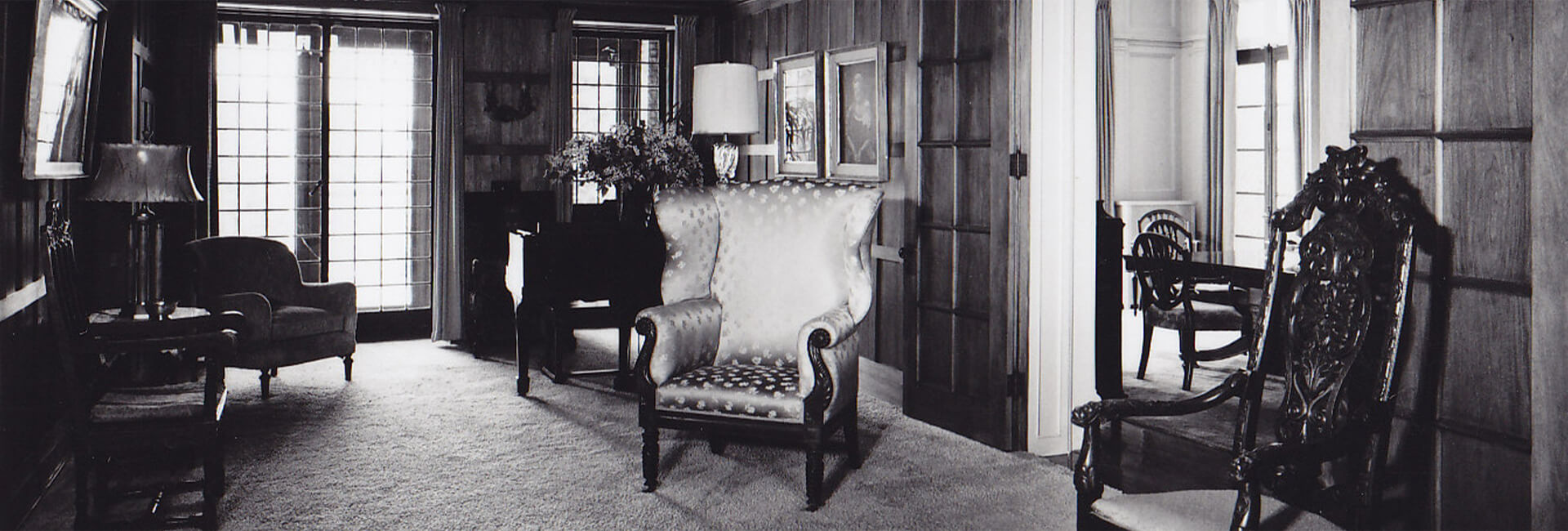
A Growing Community.
The young city of Cedar Rapids reaches a population of approximately 6,000. The next year, Caroline Sinclair moves to the area with her husband to begin a meatpacking plant.

Construction Begins.
Caroline Sinclair, a widow and mother of six, begins construction on a 15,000 sq. ft. country home.
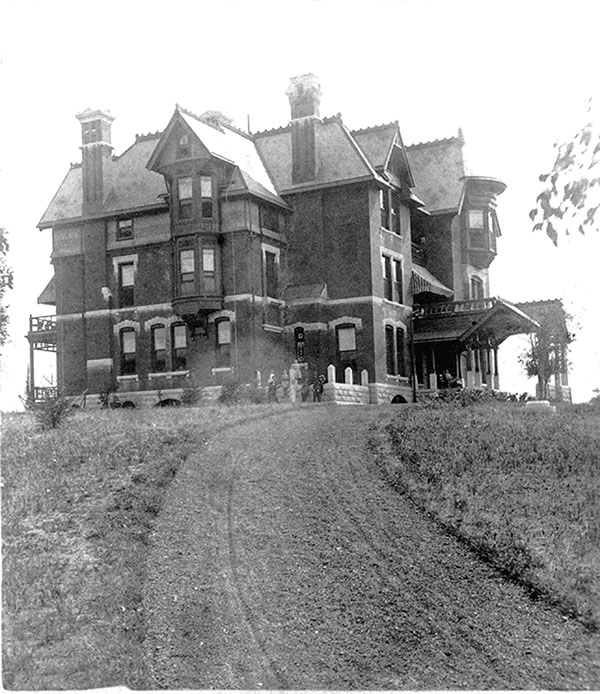
A Home on the Hill.
Two years after construction began, work is complete on Caroline Sinclair’s mansion, known at the time as “Fairhome.” The home features 21 rooms and 14 fireplaces. Newspapers flaunt the building as the “finest residence this side of Chicago.”
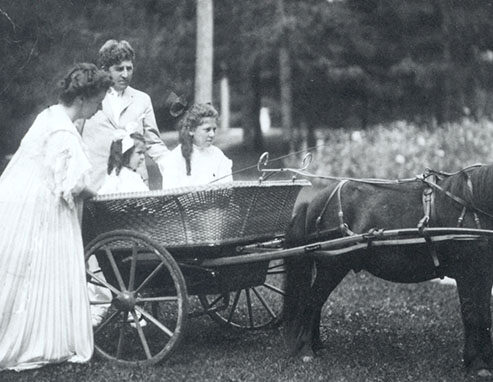
The Douglas Family Purchases a New Home.
After exploring the idea of turning her home into an orphanage, Caroline Sinclair reaches an agreement to exchange homes with another local family. George and Irene Douglas trade their home on 2nd Avenue and a sum of money for the estate. A new era begins.

Renovations Begin.
Prior to moving onto the property, the Douglas family begins to update the mansion and grounds and renames it, “Brucemore,” drawing on George’s middle name. In 1907, George and Irene move onto the property with their daughters, Margaret and Ellen. Their youngest daughter Barbara is born the following year.

A Landscape Design.
The Douglas’ gradually increase the size of the estate. They begin buying surrounding land, expanding their holdings to 33 acres. As the property grows, the family works with famed landscape architect O.C. Simonds for assistance with many of the changes.

The Servants’ Village.
In 1912, a greenhouse and a special hobby-house (used as both a bookbinding studio and a squash court) are added to the estate. These buildings join the Servants’ Duplex as part of an area which would come to be known as the Servants’ Village.

The Douglas Starch Works Explodes.
Tragedy strikes Iowa when the Douglas Starch Works, a company owned and founded by George Douglas, explodes. Reported to be the largest independent starch company in the world, the factory is one of the major industries and employers in the area. The explosion takes the lives of 44 people and damages buildings across the city.
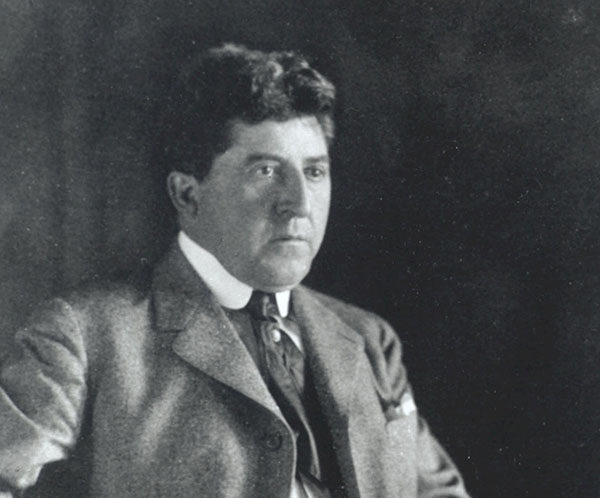
George Douglas Dies.
George Bruce Douglas dies, leaving his wife and three children. With connections to Quaker Oats and the Douglas Starch Works, George made an enduring impact on local industry and the community.

Margaret Douglas Marries Howard Hall.
The eldest Douglas child, Margaret, marries a local businessman, Howard Hall. Howard had previously founded Iowa Manufacturing in Cedar Rapids. Following the wedding, the couple move into the Garden House, a guest house on the Brucemore estate.

A One-of-a-Kind Work of Art.
A patron of the arts, Irene Douglas hires Grant Wood to decorate a sleeping porch in the mansion. She supports local and regional artists and friends despite her access to financial resources and ability to purchase art from all over the country. Grant Wood would later go on to become internationally known for his painting American Gothic.

The Voice of the Home.
Irene Douglas purchases a Skinner Player Pipe Organ. The massive instrument features an organ console, 715 pipes, blower motor, 26 registers, and 13 ranks, which occupy space on three floors of the home.
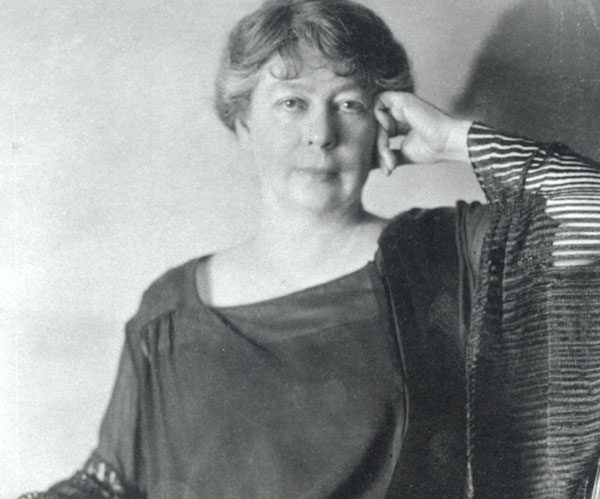
Irene Douglas Passes Away.
The death of Irene Douglas makes front page news as the community mourns the loss of a great philanthropist and patron of the arts. Following Irene’s death, Margaret and Howard Hall move into the mansion.

A Tropical Escape.
As the Halls settle into life in the mansion, they make far fewer changes than the Douglas family had a generation before them. Their most significant change is the transformation of two basement rooms into the Tahitian Room and the Grizzly Bar, which provide new areas for entertaining guests.

Leo, the Lions.
During the time the Halls lived in the Garden House and the mansion, the couple kept unusual pets. The most famous of these pets is Leo, the lion. In fact, the Halls owned a total of three pet lions, each at separate times and each named Leo. The last lion passes away in 1951.

A Presidential Visit.
In 1962, former Presidents Herbert Hoover and Harry Truman visit Brucemore. The trip is part of a series of events leading up to the opening of the Herbert Hoover Presidential Library in West Branch, Iowa. Hoover had previously visited Brucemore in 1928, during a presidential campaign.
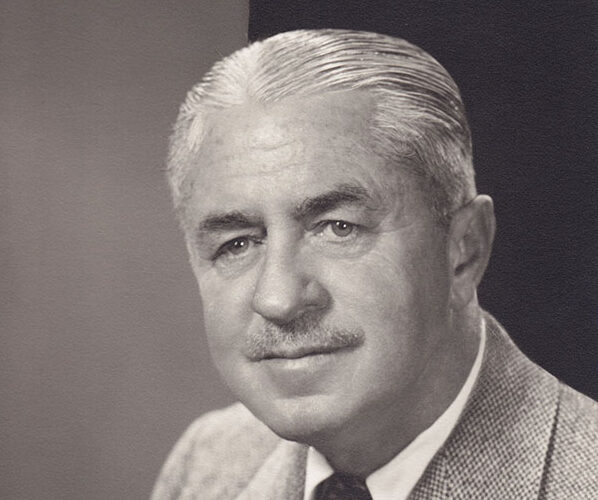
Howard Hall Dies.
A prominent local industrialist, Howard Hall, passes away.
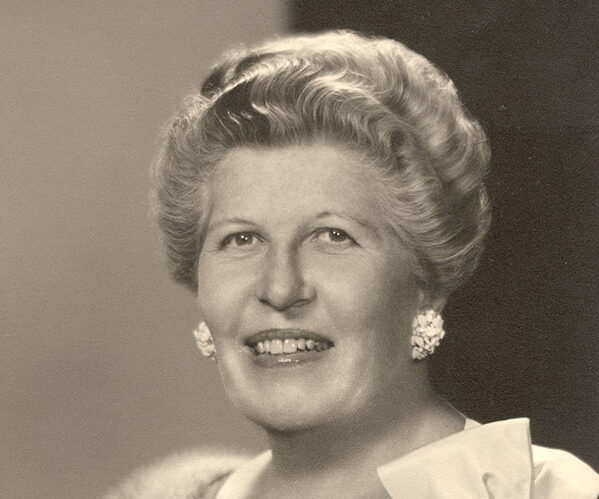
End of an Era and the Beginning of Another.
Margaret Douglas Hall dies, nearly one century after the home was built. Margaret gifts her home to the National Trust for Historic Preservation. A local nonprofit is created to oversee the site. Later, Brucemore opens to the public for tours of the mansion and access to the historic grounds.

Restoration of the Mansion Interior Begins.
Brucemore, Inc. begins a multi-decade effort to restore the Great Hall and other interior spaces to the period of significance 1915-1925. They use family photographs, check registers, and letters for research.

Performing Arts Expand.
Public outdoor theater expands at Brucemore. The estate’s beautiful setting provides a backdrop for dozens of performances. A permanent stage is later added in the Peggy Boyle Whitworth Amphitheater, named in honor of Brucemore’s first Director.

Celebrating Cedar Rapids.
After a devastating flood damages much of Eastern Iowa, Brucemore adapts summer plans to accommodate other nonprofits in search of a temporary home.
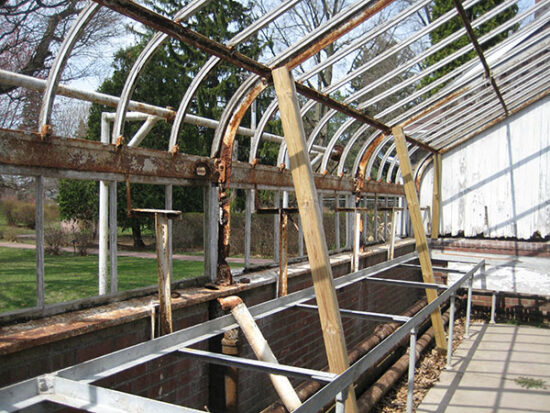
Restoring the Historic Greenhouse
Brucemore rehabilitates the Lord & Burnham Greenhouse to the Douglas era. Numerous grants and donations supported the effort.

Conserving the Grant Wood Porch
Brucemore’s unique sleeping porch, designed by Grant Wood, is an artistic treasure. A conservator works closely with a team of other experts to conserve the physical condition of the porch and reinterpret the space, bringing this masterwork to life.

Preservation on a New Scale.
Preservation is at the heart of Brucemore’s mission. Generous community support allows Brucemore to embark on the Mansion Envelope Restoration Project, a multi-year project designed to preserve the mansion exterior. This launches a new era in increasing preservation of the site’s structures.

The Artisan Studio Launches.
In October 2019, Brucemore launches the Artisan Studio as part of a long tradition of cultivating local talent. Artists are selected to write, develop, produce, record, and mix original music under the guidance of Brucemore’s Artisan in Residence, Gerard Estella.
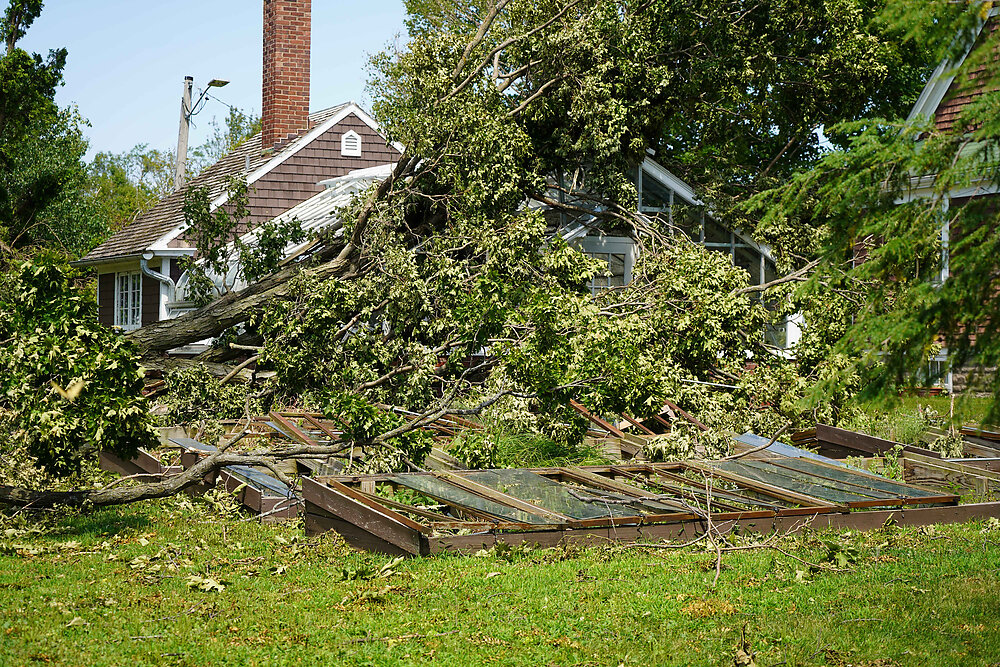
Devastation and Rebuilding
On August 10, a derecho storm marked by hurricane-force winds tears through the Midwest, causing approximately $11 billion in damage. Brucemore sustains damage to all nine buildings and loses approximately 70% of the tree canopy in its historic landscape. A long process of recovery and rebuilding begins.
